On the night I turned eighteen, I never imagined I would cry in front of everyone. Guests froze, phones mid-air, unsure whether to clap or comfort me. All I could think was how wrong I had been about the woman standing before me. I spent years calling her the villain, but the truth was painful: it was my anger that had been destroying me.
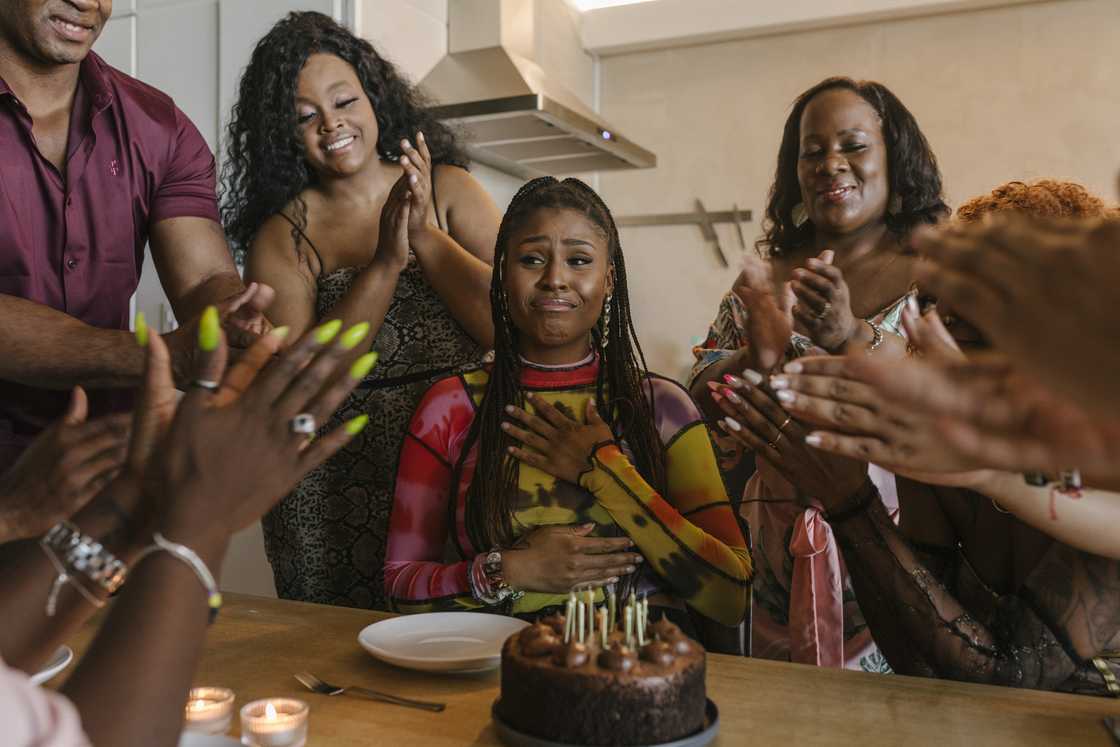
Source: Getty Images
The evening had started perfectly. Fairy lights twinkled across the compound, lanterns swayed on branches, and Afrobeats floated softly. The air carried the smell of grilled chicken, kelewele and spices. Guests laughed over waakye and shito, sipped chilled Malta and fruit punch. My cousins teased me. My friends took selfies. My father smiled proudly in his kente.
And she crept in the background, adjusting lights, straightening my dress, telling the cameraman, “Make sure she smiles.”
At the time, it irritated me. I mistook love for performance.

Read also
El-Wak stampede: Victim’s mother breaks down as she narrates final moments with her late daughter
Then she handed me a velvet box. Inside lay a gold necklace with my initials. My breath stopped.
My voice cracked. “Why have you been so good to me?”
She cupped my cheek.
“I prayed for a daughter,” she whispered. “And God gave me you.”
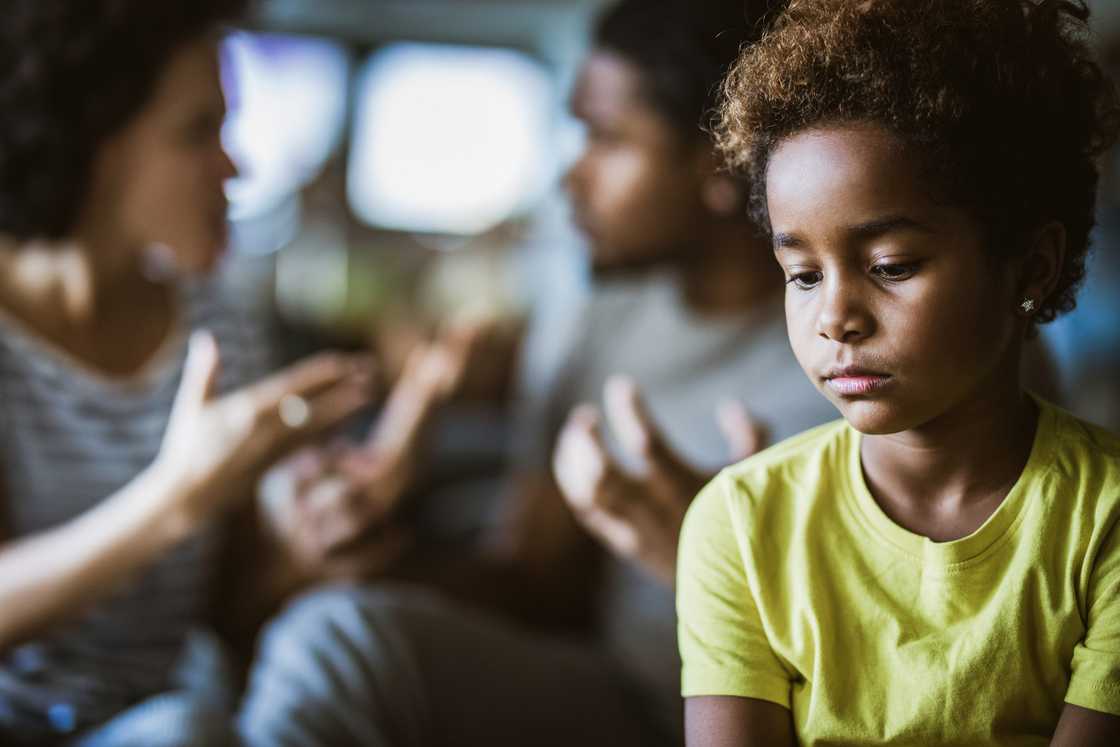
Source: Getty Images
I was twelve when everything changed. One day, my parents were together, and the next, divorce entered our home like a storm that refused to move. People say children are resilient, but heartbreak has a sound. It echoes in the quiet moments, in the way the house feels colder, in the way your mother’s smile grows smaller each day.
My sister, Ama, was seventeen at the time. Old enough to understand what divorce really meant. Old enough to feel anger deeply and loudly, even when she said nothing. When my father remarried barely a year after the separation, Ama looked at him like he had betrayed us, betrayed our mother, betrayed the peace we once had.
My mother never insulted my father. Not once. She carried her pain quietly, like many Ghanaian women do. But her silence made everything louder. She still cooked for us, still tied her scarf around her head and walked to the church near our house on Sunday mornings, still told us she loved us every night. But the light in her eyes dimmed.

Source: Getty Images
When I was seventeen, she fell sick. It was sudden. One moment, she was telling me to add salt to the stew, and the next, she could barely stand up without losing breath. Cancer. A word that felt like a knife to my chest. Within three months, she was gone. Just like that. A gentle goodbye and a quiet funeral in Kumasi, where we buried her beside my grandparents.
Once the dust settled, everyone asked the same question: where would I live?
My aunt offered. My grandmother provided too. But everyone knew the actual answer. I was still my father’s child. And so I packed my clothes, my exercise books from SHS, my memories of my mother, and a grief too heavy for someone my age.
I moved into my father’s new home in Accra.
Where she lived.
The woman my sister believed ruined everything.
I walked into that house with resentment already sitting in my chest like a stone.

Read also
Celestine Donkor says a popular gospel singer demanded 70% payment before performing at her event
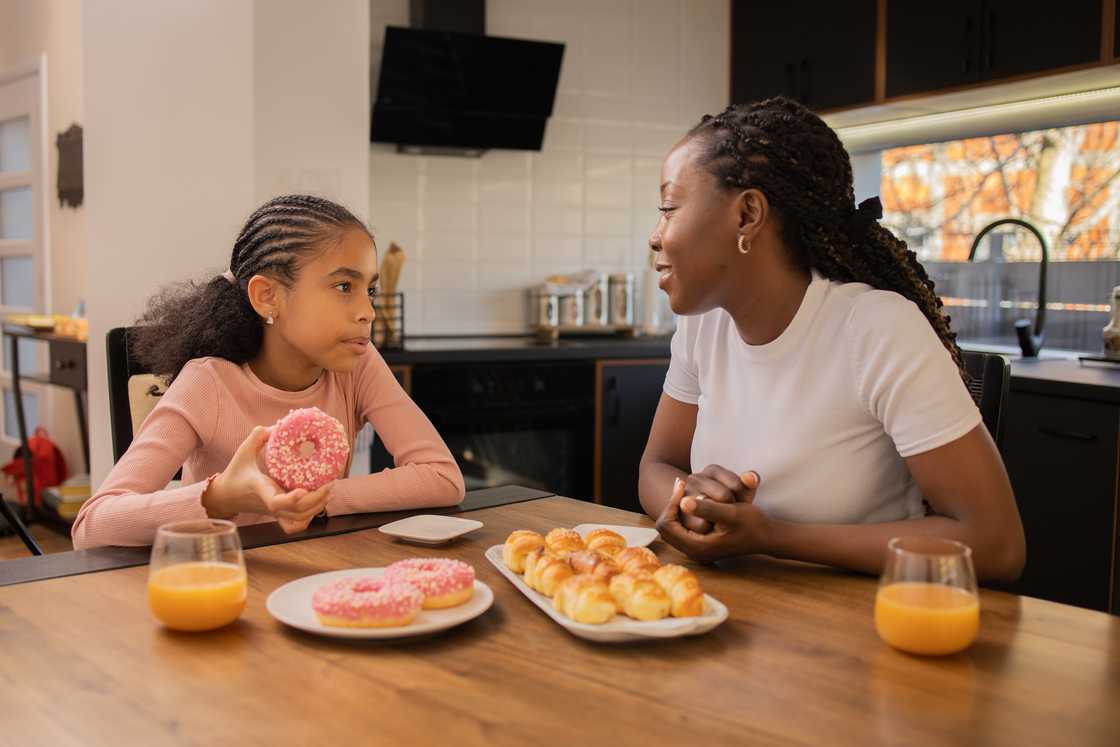
Source: Getty Images
The first morning in that house, I sat at the dining table staring at a plate of toast and eggs like it were a stranger. Everything felt wrong. The spotless kitchen counters. The soft grey curtains. The hum of the fridge. The lavender scent that did not belong in my life. My mother used to smell like shea butter and cocoa butter. Grief makes the slightest changes feel like betrayal.
My stepmother, Auntie Lydia, placed a steaming cup of tea in front of me.
“Good morning, sweetheart,” she said gently.
I stiffened. Affection felt like a threat. I muttered, “Morning,” without looking up, afraid my voice would shake if I met her eyes.
Later that day, Ama called from the UK. Her voice was tight with pain.
“Do not forget what they did to Mum,” she warned.
“Do not get too comfortable.”
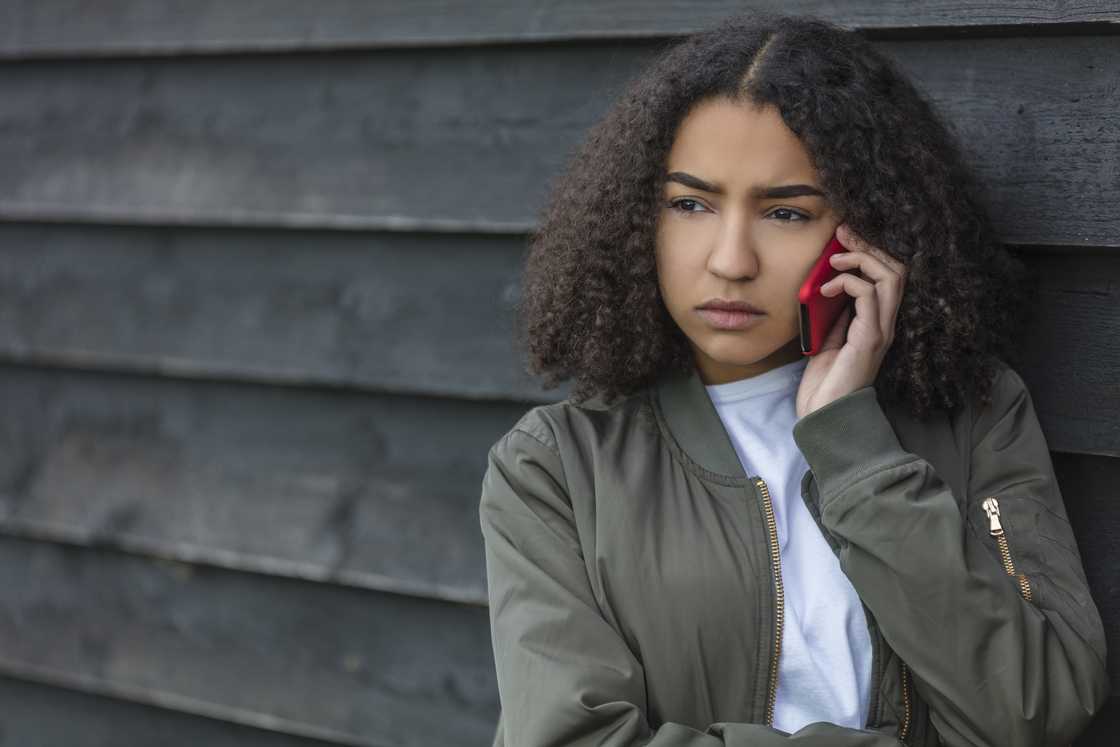
Source: Getty Images
Comfort. The word tasted bitter. Nothing about this place felt like comfort, but I whispered, “I will not,” because loyalty to Ama felt safer than making my own judgment.
For months, I lived like a visitor. No, like someone occupying space she did not deserve. I washed my plate instantly after eating, cleaned my room constantly, and spoke only when spoken to. I tried not to leave footprints in that house.
Grief had turned me into a silent soldier, protecting myself from nothing and everything at once.
But instead of letting me disappear, Auntie Lydia noticed everything. She washed my plate before I could reach the sink. She never stepped into my room without knocking.
“Is it okay if I come in?” she would ask, holding the neatly folded laundry.
Why was she folding my clothes?
“Please do not touch my things,” I snapped once.
Her expression softened instead of hardening.
“I am sorry. I only wanted to help.”
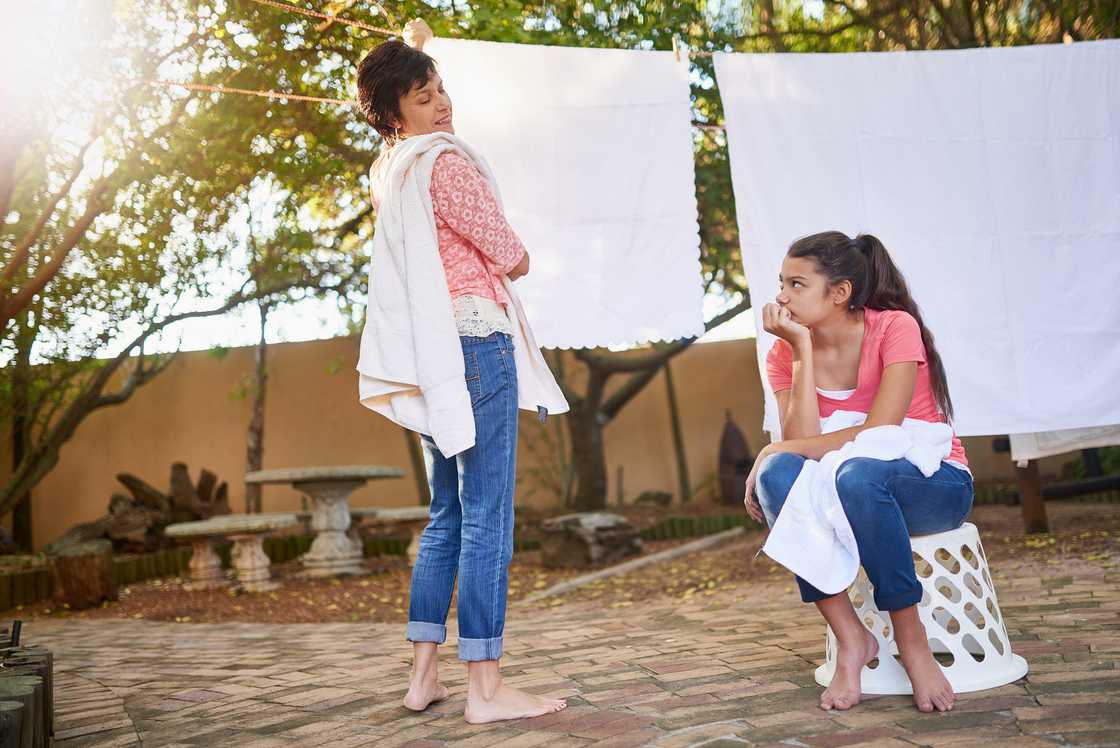
Source: Getty Images
Her calmness irritated me more than if she had argued. I wanted to believe she was the villain. Anger was easier than accepting kindness from someone I had decided to hate.
At dinner, she served me first. When Dad travelled to Tamale for work, she checked on me every evening. She brought hot cocoa during exam weeks. She packed waakye for me with extra plantain because she noticed I loved it. And still, I answered with the same stiff, cold line:
“I am fine.”
One Saturday, she asked softly,
“Can I braid your hair for school?”
“No,” I replied sharply. “My friend will.”
Her smile wavered for a moment before she stepped back.
And guilt hit me so suddenly that it startled me. I pushed it away.
Ama returned for Christmas. She hugged me tightly, then studied the scene like she expected to find betrayal in the air.
“Do not let them brainwash you,” she murmured.
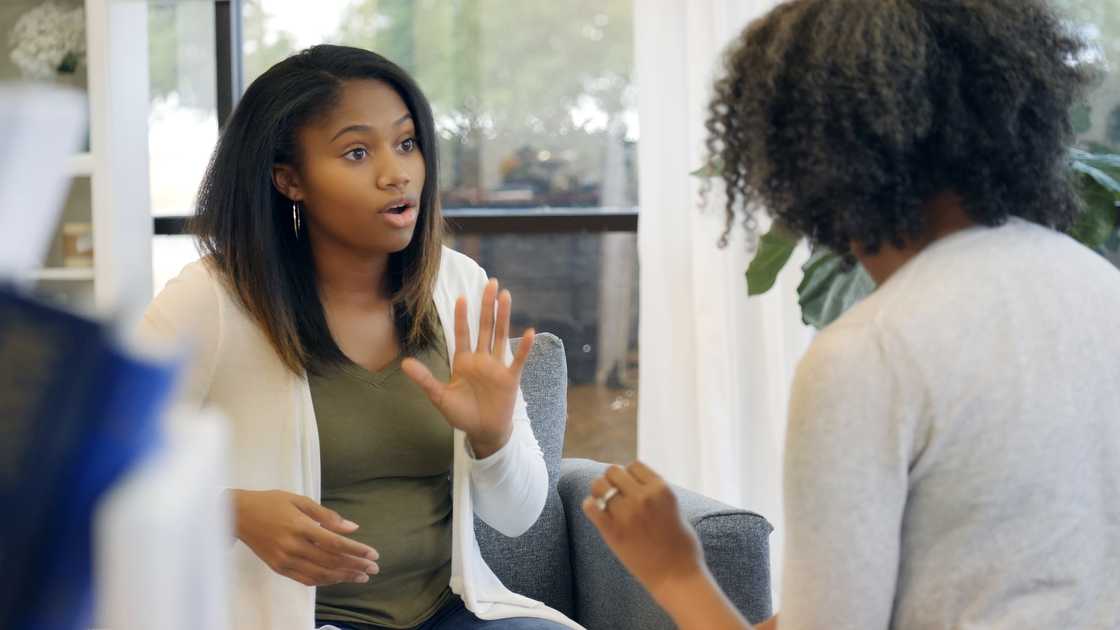
Source: Getty Images
That night, she raised her voice in the living room.
“Our mother died, and everyone is pretending life is normal?”
Silence. Dad looked down.
Auntie Lydia pressed a hand to her chest but did not defend herself.
Later that night in my room, Ama cried.
“I miss her so much.”
“I miss her too,” I whispered, holding her.
But when she fell asleep, I lay awake hearing one quiet truth beating inside me:
Not all pain has one villain.
Still, I clung to Ama’s anger like it was a duty. I believed suffering together was loyalty. I did not yet know that healing does not betray the dead. I only knew how to mourn, not how to receive love.
I was grieving.
And I was terrified to let go.
My eighteenth birthday came shortly after Ama returned to the UK. I expected a quiet day. Maybe a meal. Nothing too dramatic. But Auntie Lydia organised something else entirely.
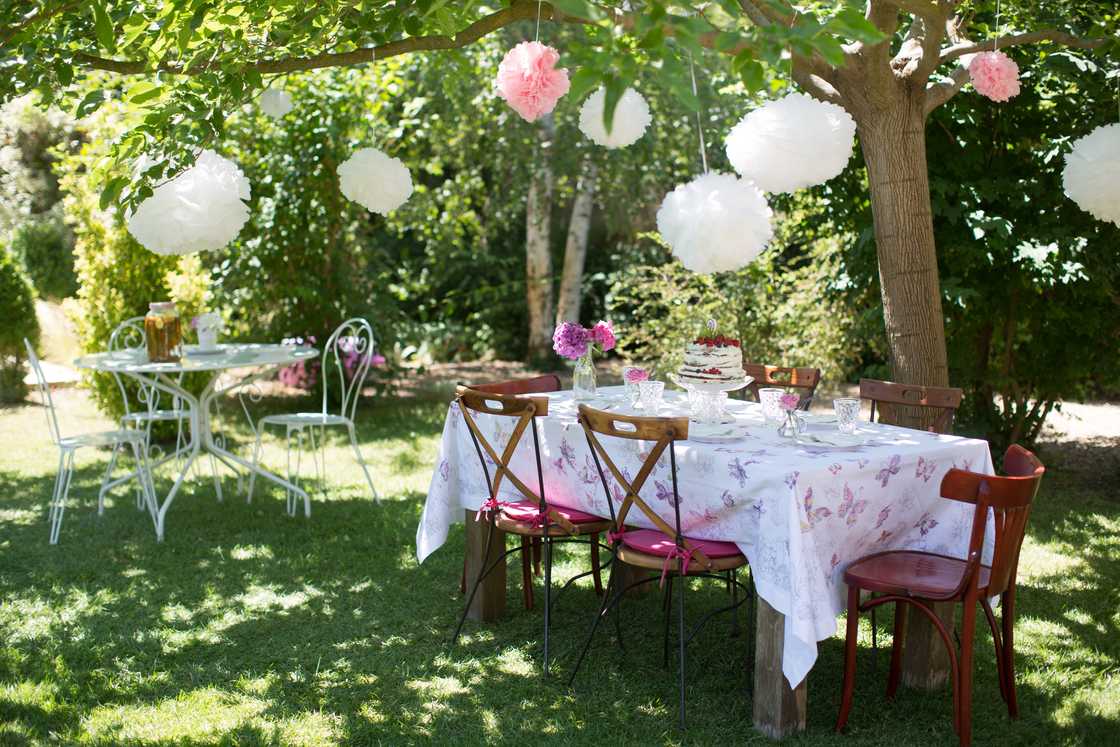
Source: Getty Images
She decorated the compound with fairy lights and flowers. She hired a caterer who brought grilled tilapia, fried yams, shito, and fresh fruit juice. She invited my friends from school, my favourite aunties, cousins from Kumasi, and even my favourite SHS English teacher.
When I walked out, I froze. Everything looked magical. Gold and white everywhere. Soft music. People cheered when they saw me.
My dad hugged me proudly.
“You deserve the world,” he whispered.
Then Auntie Lydia took the microphone to make a toast.
“From the day she came into our home, she brought grace and light,” she said.
I wanted to sink into the floor. Me? Grace? I had been cold and rude.
“I prayed for a daughter. When God gave me her, I thanked Him every day.”
I felt tears sting my eyes.
Then she gave me the necklace. My initials shine softly in the evening light. So thoughtful. So personal. So loving. It was the kind of gift only someone who paid attention would choose.
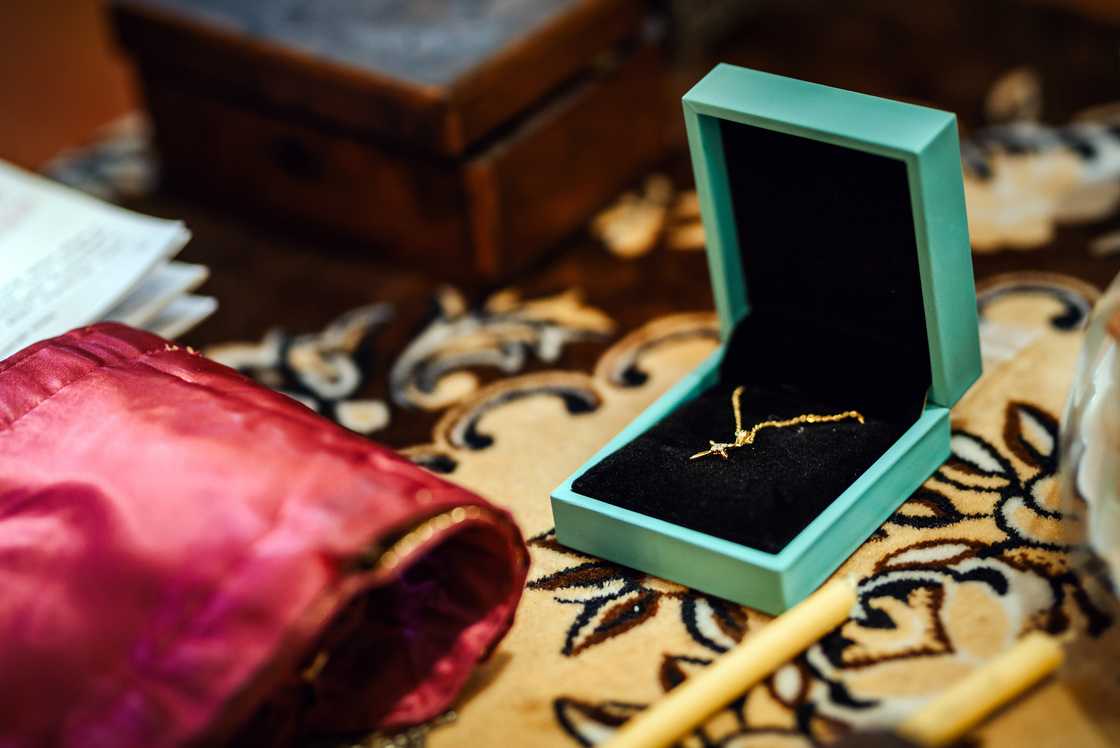
Source: Getty Images
Suddenly, I could not breathe.
The guilt hit hard.
The kindness felt like a blanket I had refused for far too long.
I broke down crying, deep, trembling sobs.
“I am sorry,” I whispered in her ear as she hugged me tightly.
“I treated you badly.”
She held my face and said,
“I understood. Pain takes time. But you never lost love. You only gained more.”
In that moment, I realised something important.
She did not steal anything from me.
She did not take my mother’s place.
She stood beside the space where my mother belonged and offered warmth.
And I had refused it because I thought loyalty meant holding on to pain.
That night, I messaged Ama.
“She loves us. Truly.”
Hours later, she replied,
“I cannot forgive yet.”
And finally, I understood that grief has different timelines.
Mine had just shifted.
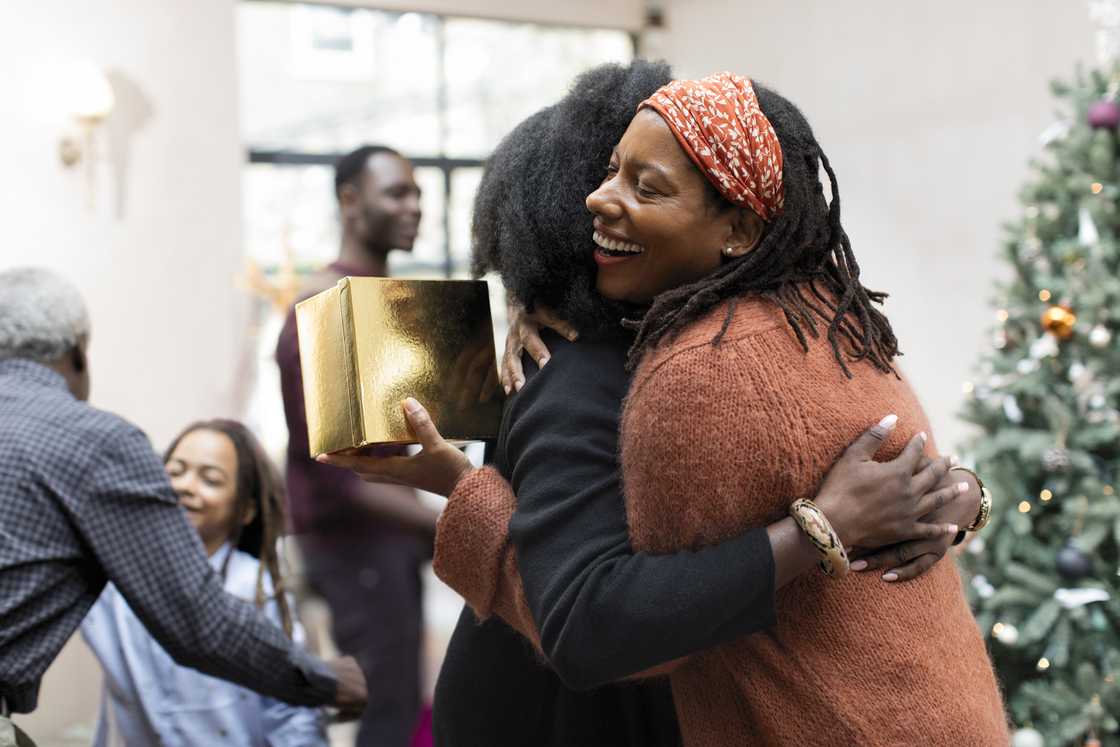
Source: Getty Images
I never moved out after SHS. I stayed. I chose to. Not because I had nowhere to go, but because the house that once felt strange slowly became home. There was laughter in the hallways again. There was quiet understanding in the mornings. There was love that did not demand, but waited patiently for me to trust it.
Auntie Lydia helped me apply to the University of Ghana. She reminded me to eat during exam season, even packing fruit when I rushed out late for lectures. She learned my favourite meals and surprised me with Banku and okro stew on stressful days.
Sometimes she would leave small treats in my drawer with a note: “Proud of you.” My little brother, who came later, slipped notes under my door saying, “I saved you biscuits” or “Do you want to watch cartoons with me?”
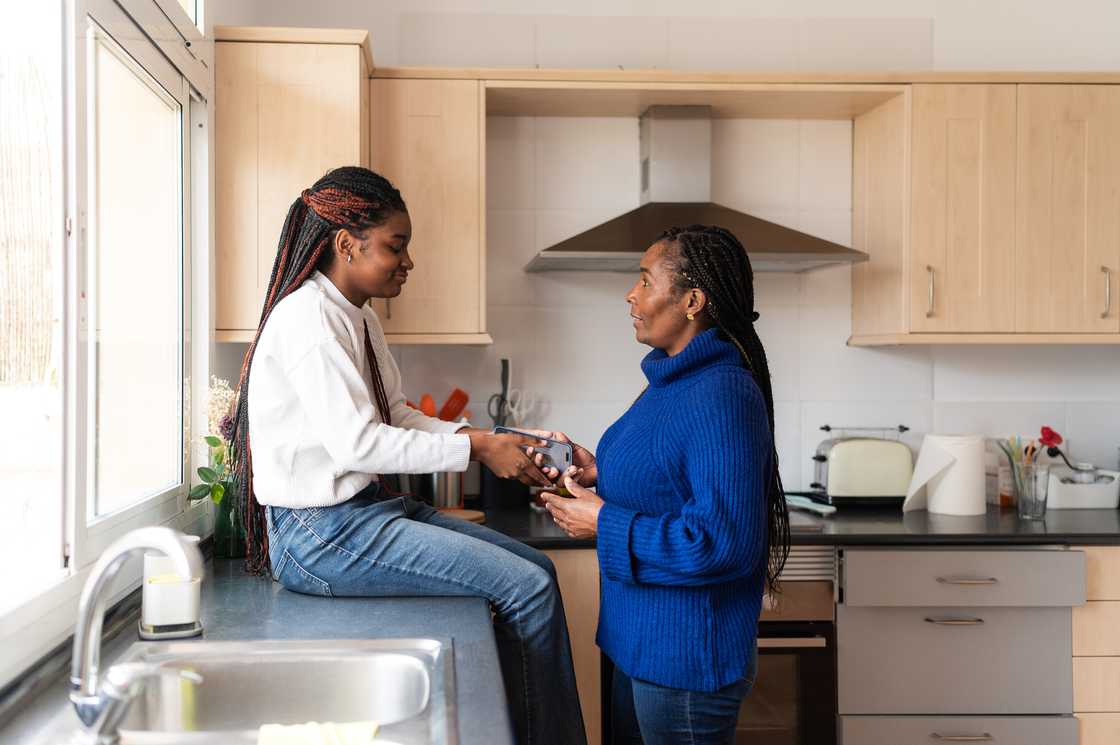
Source: Getty Images
Healing arrived quietly. It did not knock. It simply settled slowly, one act of love at a time, until I woke up one day and realised I felt safe again.
When Ama came back after completing her studies, she saw the bond between me and Auntie Lydia. She looked hurt at first. Then, curious, then hopeful. Auntie Lydia never forced anything. She extended patience again. Ama resisted. Then softened. Then, finally, let go. Watching the two of them laugh over kelewele in the kitchen felt like a full circle I did not know I needed.
Kindness wins slowly but surely.
And now, six months before my wedding, I made one of the most significant decisions of my life. I asked my stepmother to walk down the aisle with my father and give me away.
She froze. Then tears poured down her face. She hugged me so tightly I could barely breathe.
“Thank you for making me your daughter,” she whispered.
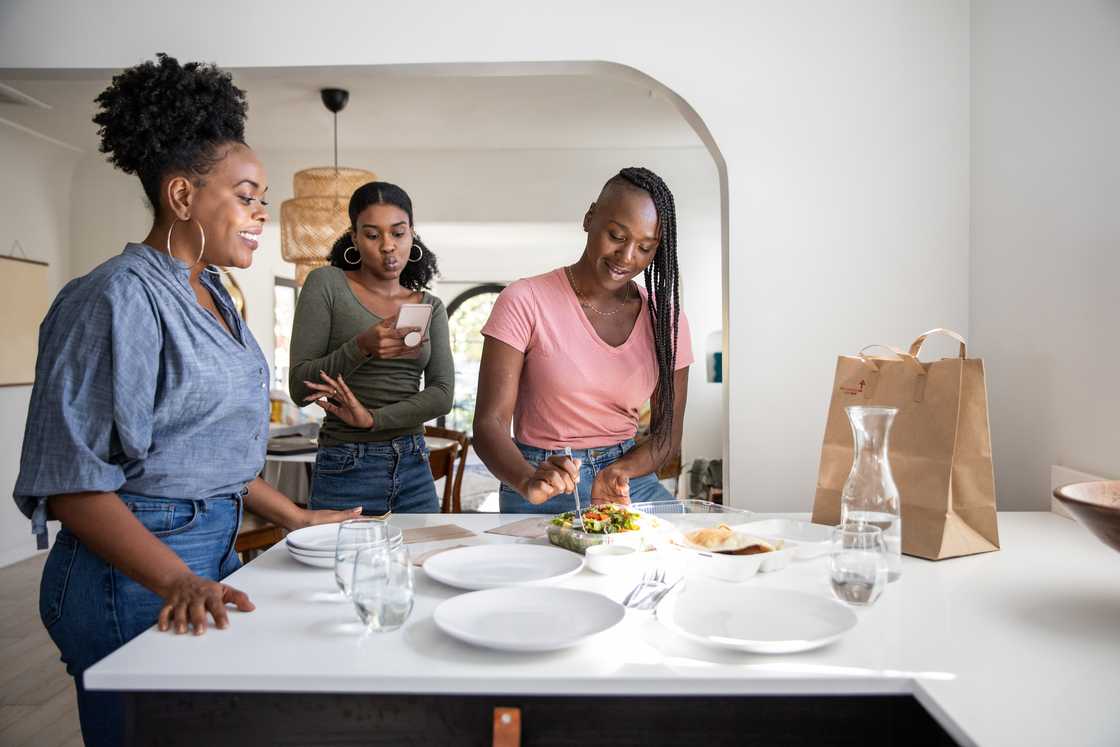
Source: Getty Images
I shook my head.
“You made yourself my mother.”
People joke about wicked stepmothers. Fairy tales ruined their names. But sometimes life gives you a second mother not to erase the first, but to remind you that love does not run out, and hearts can hold more than one truth at a time.
For a long time, I believed loving my stepmother meant betraying my mother. I thought grief was a monument I had to protect, a solid thing I had to stand by so no one could say I forgot. But grief is not loyalty.
It is love that has nowhere to go, stretching itself into corners of your heart and settling there until you teach it to breathe again.
Letting someone else in does not push the first person out. It only expands the space inside you. My mother will always be part of me. Nothing changes that. Her prayers still live in me. Her voice still guides me when I make decisions.
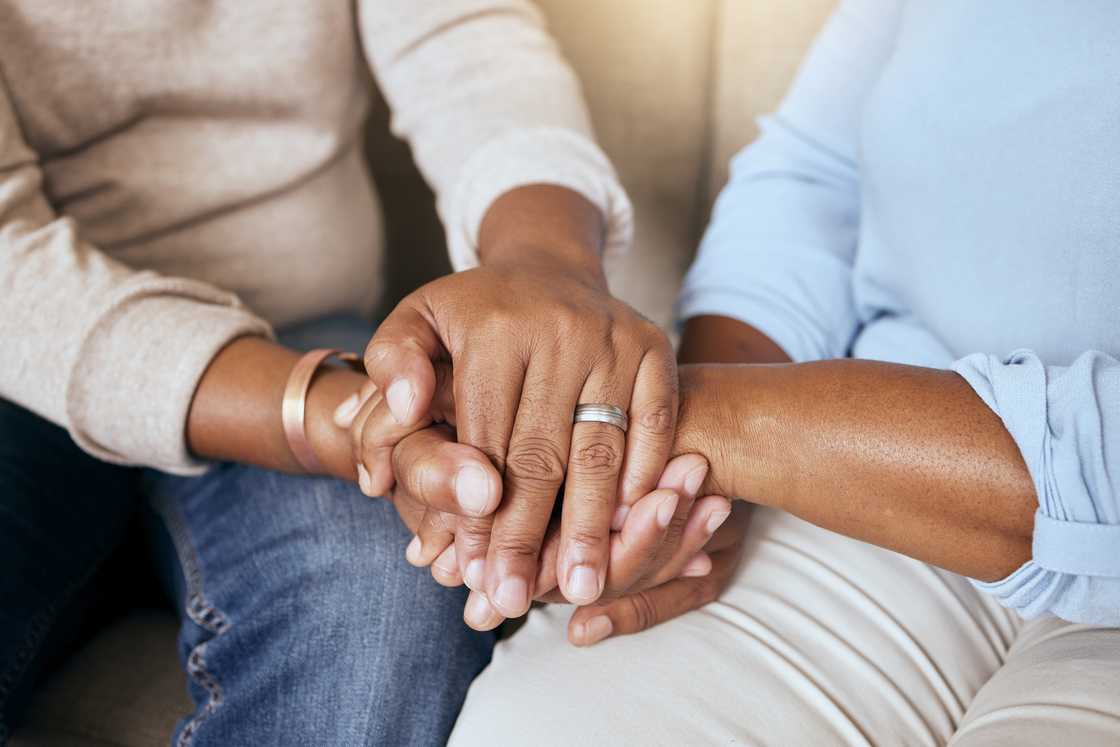
Source: Getty Images
But I learned something valuable along the way:
You do not honour the dead by rejecting the living.
And forgiveness is not weakness. Sometimes it is bravery. Sometimes it is choosing peace when pain feels easier. Sometimes it is deciding your heart deserves more than sorrow, more than heaviness, more than holding onto wounds like inheritance.
Auntie Lydia never replaced my mother. She stood beside that empty place and filled my world with care, patience, and quiet love. She showed up where life had cracked and offered softness. She became a blessing I nearly rejected because I was afraid to let my heart move forward.
Sometimes the people we resist most are the ones sent to heal us. And sometimes love returns in a different clothing, in a distinct voice, but carrying the same grace you thought you lost forever.
Have you ever shut someone out because you were afraid to hurt someone else’s memory? What might happen if you let yourself receive love again: fully, freely, without guilt?
This story is inspired by the real experiences of our readers. We believe that every story carries a lesson that can bring light to others. To protect everyone’s privacy, our editors may change names, locations, and certain details while keeping the heart of the story true. Images are for illustration only. If you’d like to share your own experience, please contact us via email.
Source: YEN.com.gh
Source: Yen.com.gh




















